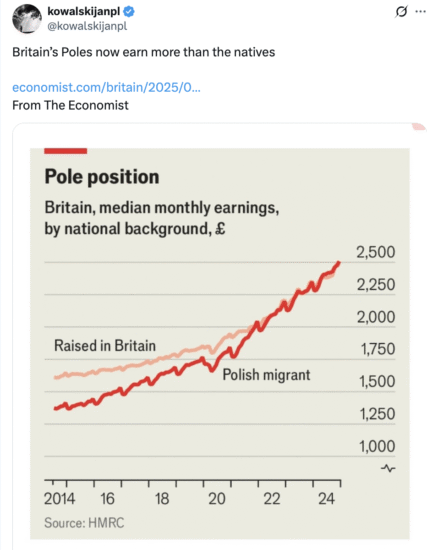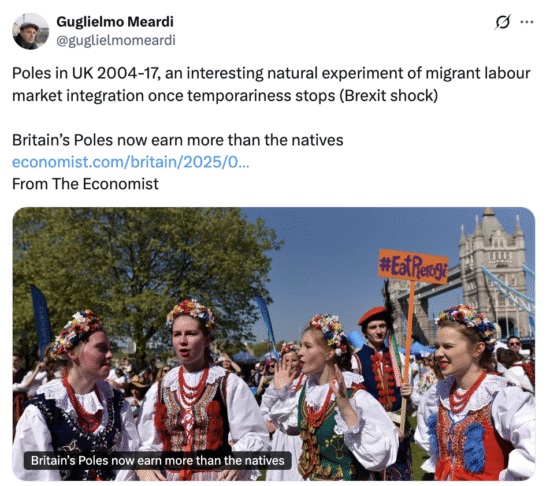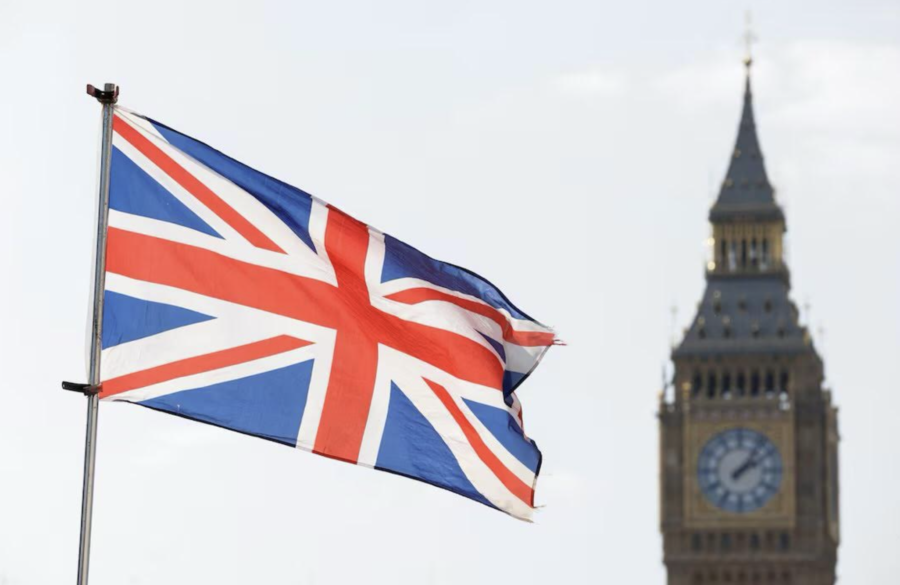According to the article in The Economist, the Polish migrants who were born outside the UK now earn more than British natives. This dynamic is most probably caused by the growing language skills of Poles working in Britain, but also because not many Poles want to come to the UK anymore, and therefore replace the experienced workers, serving as a lower-paid newcomer.
When Poland and several other eastern European countries joined the European Union in 2004, the UK saw a wave of migration. Among the new arrivals, Poles formed the largest group, over half of all migrants from the region. They flooded into sectors like agriculture and hospitality, which were short on labour, light on language requirements, and notorious for low pay. Others became self-employed tradespeople—builders and plumbers—echoing familiar stereotypes.
A decade ago, Polish workers in Britain earned, on average, 15% less than their British-born counterparts. Today, their median wages have edged ahead. This shift highlights both personal perseverance and broader social trends.
The 2021 census in England and Wales recorded 743,000 people born in Poland, with 637,000 reporting good or better English skills. This linguistic and professional progress likely plays a role in rising wages.
Another factor is a serious shift in who stays in the UK. Since 2017, the number of Poles on UK payrolls has dropped by nearly 25%. According to some Poles, many of those who’ve climbed into the middle class remain, while others, particularly manual workers, are returning home, where economic prospects have improved dramatically. Polish wages, when adjusted for purchasing power, have grown from 52% of the UK level in 2004 to 71% today.
This selective return migration may be lifting the average earnings of Poles who remain in Britain. Meanwhile, UK immigration rules have changed since Brexit. Poles now face the same visa requirements as applicants from countries like Paraguay and Pakistan. In 2024, only 1,200 Polish nationals received UK work permits.
In 2024, the UK granted 210,000 work visas to main applicants across all categories, marking a 37% decrease from the previous year.
Christian Dustmann, an economist at University College London, suggests that this policy shift may partly explain the rise in wages. Unlike other groups, such as British natives or non-EU migrants, Polish immigrants are no longer being replenished by younger, lower-paid newcomers. Instead, the existing population is ageing, gaining skills, and moving up the career ladder.
Their British-born children are classified as natives in payroll statistics, so the earnings of the Polish group appear to rise even faster.
According to The Economist, the Polish experience illustrates a deeper truth about migration: despite early hardships, many immigrants acquire language skills, navigate new systems, and climb into better jobs. Often overlooked in political debates, these gradual transformations quietly reshape both lives and economies.
Source: The Economist
Photo: British Poles
Tomasz Modrzejewski











